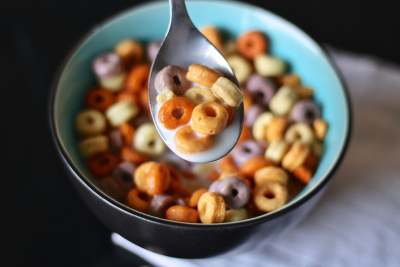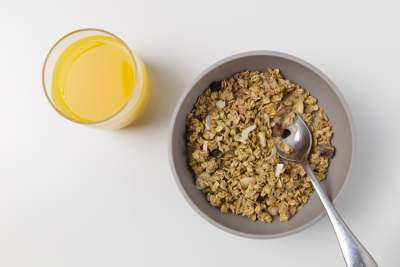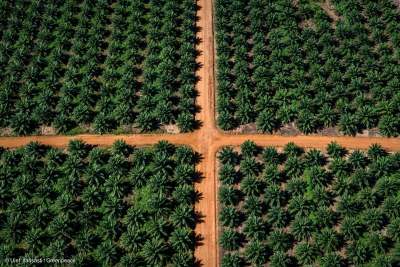In many places around the world, breakfast food is the same as food eaten at any other time of day. But here in the UK, breakfast means cereal. Nearly 90% of us eat breakfast cereals and in 2022, we spent nearly £1.8 billion on them.
Breakfast cereals have been described as having a “health halo” meaning that we assume they’re generally good for us based on single claims such as “high fibre” or “low fat”. In reality, many of them are quite bad for us.
We look at the sugar content of cereals and how companies are responding to calls to reduce it. We also discuss what companies are doing on palm oil, GMOs, greenhouse gas emissions, and packaging. We also highlight vegan cereals and vegan-only brands.







